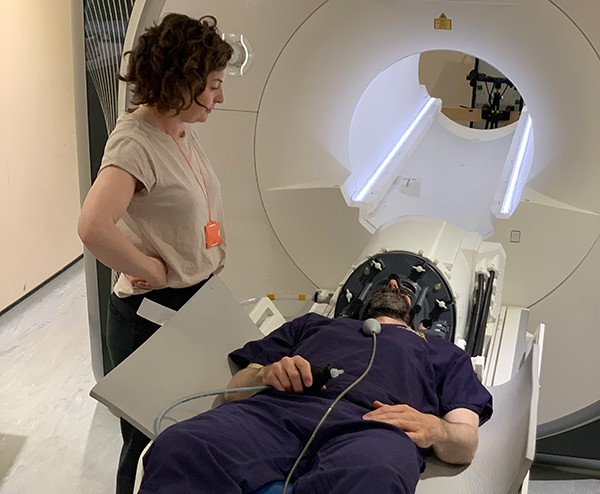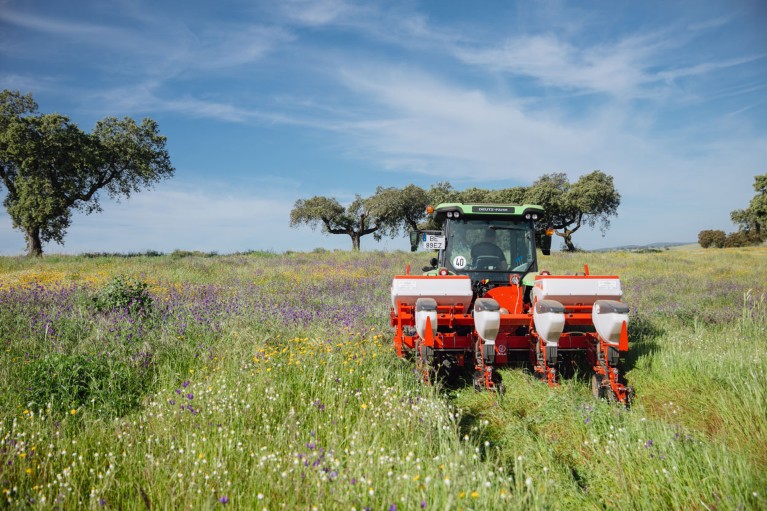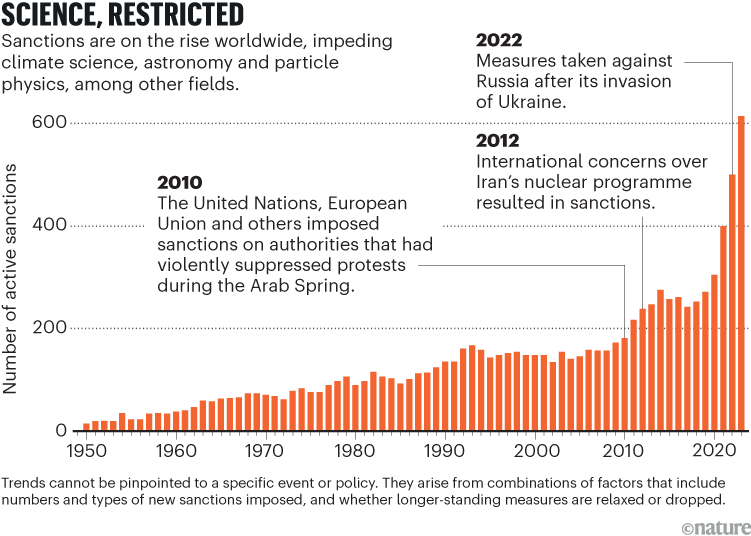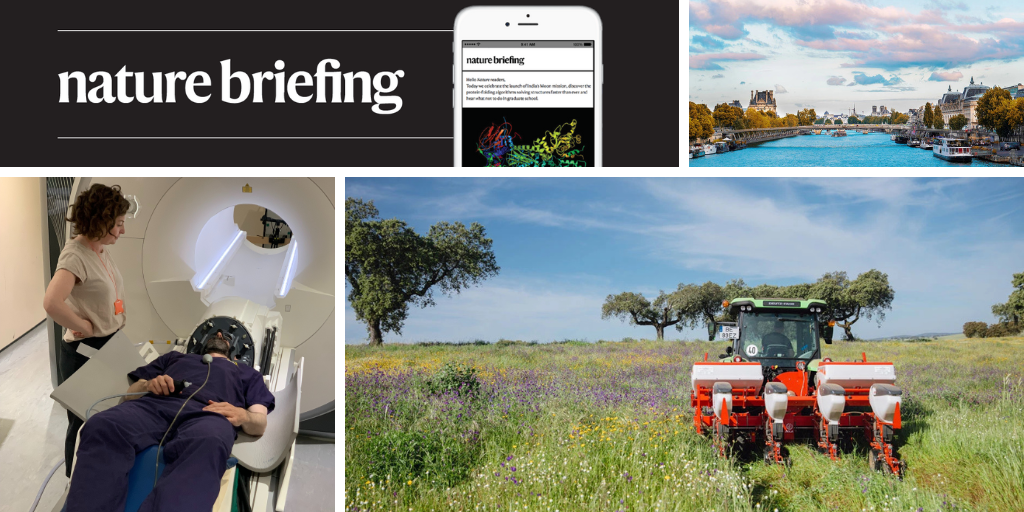You have full access to this article via your institution.
Hello Nature readers, would you like to get this Briefing in your inbox free every day? Sign up here.

This ‘helmet’ fits inside an MRI scanner. “It is chunky and claustrophobic putting it on the head at first, but then you get comfortable,” says study author and participant Ioana Grigoras. (Brad Treeby/UCL)
Researchers have developed a prototype ultrasound ‘helmet’ that non-invasively delivers mechanical pulses deep into the brain, offering an alternative to invasive deep-brain stimulation for disorders such as Parkinson’s, Alzheimer’s and depression. In a test on seven volunteers, the device was able to target an area the size of a grain of rice, with lasting impact on brain activity afterwards. Neuroscientist Elsa Fouragnan says this proof of concept “represents a fundamental neuroscience milestone that opens the way for clinical translation”.
Reference: Nature Communications paper
A vaccine against chlamydia has been approved for koalas (Phascolarctos cinereus) in Australia. The disease causes debilitating blindness and infertility, further harming a species diminished by habitat loss, wildfires and road collisions. The vaccine “offers three levels of protection — reducing infection, preventing progression to clinical disease and, in some cases, reversing existing symptoms”, says microbiologist Peter Timms, who led the team that developed the jab. Rolling out a vaccine to wild animals is not trivial, and researchers are calling for government funding to help deliver it to at-risk koala populations.
As the appeal of the United States dims for international students pursuing graduate studies, other countries are jumping at the chance to host them. Canada, France, Germany, Spain, South Korea, China and Hong Kong are among the nations where new initiatives aim to entice would-be PhD students.
OpenAI says that its latest suite of large language models, GPT-5, has fewer ‘hallucinations’ — including, critically for scientists, fake citations — than its predecessors. In a literature-review benchmark test done for Nature, the model performed on par with human experts in producing answers to open-ended computer-science questions when it had access to the web. When the model was unable to get online, it fabricated or muddled citations less often than the previous model, but still got them wrong 39% of the time.
Features & opinion

Herberto Brunk plants sunflower seeds amid a cover crop of diverse plants that help to protect the soil on his farm in Portugal.Credit: Barbora Mrazkova
As warming temperatures threaten the agricultural output of Europe, some farmers are turning to regenerative agriculture, which prioritizes soil health and boosts biodiversity, while minimising tilling and pesticides. But not all farmers are enthusiastic: protests forced the European Union to back down on certain environmental requirements for agriculture, and critics argue that the financial incentives fall short of what’s needed to actually make the switch. Still, given Europe’s commitments to reduce greenhouse gas emissions, proponents of regenerative agriculture are optimistic it’s gaining traction.
Policies regulating the use of artificial intelligence (AI) by scientists tend to focus on how it is used to write papers, but “the threat lies not in how we write science, but in how we find it”, argues Zhicheng Lin, a metascientist and psychologist. For example, AI systems tend to exacerbate ‘the Matthew effect’ — “to those who have, more will be given” — by serving up the same high-profile papers over and over again. “The academic community must recognize that the systems shaping how we access knowledge require the same scrutiny given to the tools shaping how we produce it,” writes Lin.
Even when they don’t target science specifically, sanctions can hinder science — especially long-term projects, such as the monitoring of changes in climate and ecosystems. James Oliver Scott Hammond and Jean-Christophe Mauduit, who study environmental hazards and science diplomacy, outline five ways to help develop and maintain scientific collaborations in a world that is fragmenting geopolitically.

Source: www.globalsanctionsdatabase.com
Today I’m admiring a kayak made from mushrooms (Ganoderma polychromum) grown on a hemp substrate and sealed with beeswax. Artist Sam Shoemaker paddled the craft around 42 kilometers across the Catalina Channel in California last month. Should you wish to try your hand at fungi fabrication, Shoemaker says he will share a free guide to the process later this year.
While I plan my portobello paddleboard, why not send us your feedback on this newsletter? Your e-mails are always welcome at [email protected].
Thanks for reading,
Flora Graham, senior editor, Nature Briefing
With contributions by Jacob Smith and Laura Woodrow
• Nature Briefing: Careers — insights, advice and award-winning journalism to help you optimize your working life
• Nature Briefing: Microbiology — the most abundant living entities on our planet — microorganisms — and the role they play in health, the environment and food systems
• Nature Briefing: Anthropocene — climate change, biodiversity, sustainability and geoengineering
• Nature Briefing: AI & Robotics — 100% written by humans, of course
• Nature Briefing: Cancer — a weekly newsletter written with cancer researchers in mind
• Nature Briefing: Translational Research — covers biotechnology, drug discovery and pharma


